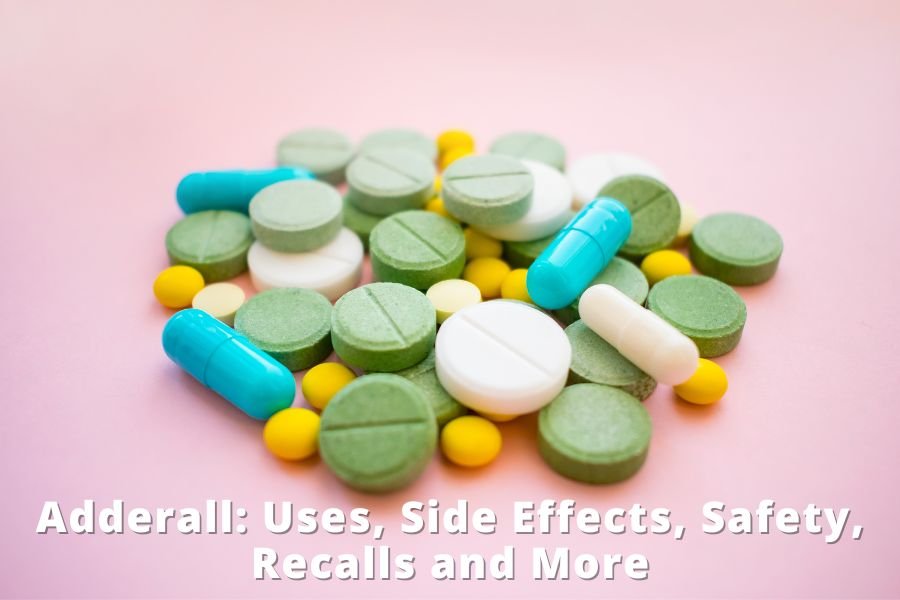
Adderall is a prescription medication primarily used to treat attention deficit hyperactivity disorder (ADHD) and narcolepsy. It is a central nervous system stimulant that contains a combination of amphetamine and dextroamphetamine salts. Adderall works by increasing the levels of certain neurotransmitters, such as dopamine and norepinephrine, in the brain, which helps to improve focus, attention, and impulse control in individuals with ADHD.
In addition to its approved medical uses, Adderall is sometimes misused or abused for its stimulant effects, such as increased energy, alertness, and euphoria. However, it is important to use Adderall only as prescribed by a healthcare professional, as misuse or abuse can lead to serious health risks and potential addiction.
Adderall is a prescription medication that is commonly used to treat attention deficit hyperactivity disorder (ADHD) and narcolepsy. It contains a combination of two stimulant drugs, amphetamine and dextroamphetamine, which work by affecting certain chemicals in the brain that contribute to hyperactivity and impulse control.
Like any medication, Adderall can cause side effects. Some of the common side effects include:
While rare, some individuals may experience more serious side effects when taking Adderall. These can include:
It is important to note that Adderall is not recommended for use during pregnancy. Studies have shown potential risks to the fetus, including low birth weight and premature delivery. Additionally, the safety of Adderall in children under the age of three has not been established.
There have been instances of Adderall recalls in the past due to quality control issues. It is always important to stay informed about any recalls and consult with your healthcare provider if you have any concerns.
Adderall received approval from the U.S. Food and Drug Administration (FDA) in 1996 for the treatment of ADHD. It has since become one of the most commonly prescribed medications for this condition.
Adderall is prescribed to help individuals with ADHD improve their focus, control impulsive behaviors, and manage hyperactivity. It can also be used to treat narcolepsy, a sleep disorder characterized by excessive daytime sleepiness and sudden attacks of sleep.
Adderall should be taken exactly as prescribed by your healthcare provider. It is typically taken orally, with or without food, once or twice a day. The dosage and frequency will depend on the individual's condition and response to the medication. It is important not to crush, chew, or break the extended-release capsules or tablets.
While Adderall is primarily prescribed for ADHD and narcolepsy, there may be instances where healthcare providers may prescribe it off-label for other conditions such as depression or obesity. However, this should only be done under the supervision of a healthcare professional.
Before taking Adderall, it is important to inform your healthcare provider about any pre-existing medical conditions, including heart problems, high blood pressure, glaucoma, or a history of drug abuse. Adderall should be used with caution in individuals with these conditions.
Adderall should be stored at room temperature, away from moisture and heat. It should be kept out of reach of children and pets. When disposing of unused or expired Adderall, it is important to follow proper disposal guidelines to prevent misuse or accidental ingestion.
If you suspect an overdose or experience severe symptoms such as chest pain, difficulty breathing, or seizures, seek immediate medical attention or call your local emergency helpline. It is important to provide healthcare professionals with as much information as possible, including the amount of Adderall taken and the time of ingestion.
While Adderall can be an effective medication for managing ADHD and narcolepsy, it is important to use it responsibly and under the guidance of a healthcare professional. Regular check-ups and open communication with your healthcare provider are essential to monitor the effectiveness and safety of Adderall in your specific case.
Like any medication, Adderall carries both benefits and risks. When used as prescribed and under the supervision of a healthcare professional, the risks are generally minimized. However, misuse or abuse of Adderall can lead to serious health consequences, including addiction, cardiovascular problems, and psychiatric disorders. It is important to use Adderall responsibly and only as directed by your healthcare provider.